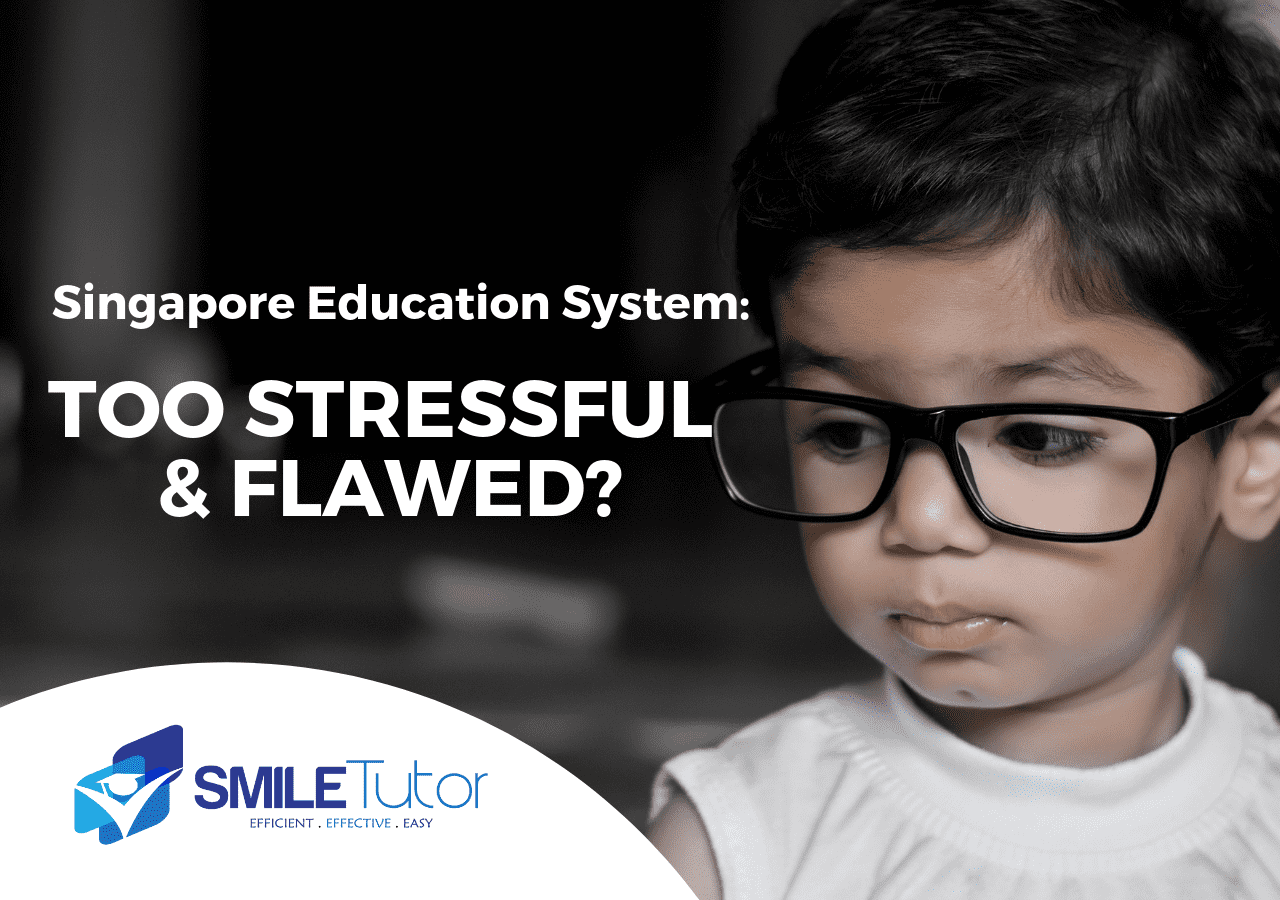
The Singapore education system has received many praises and equally as many scorns.
On one hand, Singapore’s education system is considered to be among the best in the world, with students consistently ranking well in global achievement tests.
On the other hand, ask anyone who has been through the system and chances are, they’d highlight the emphasis on rote learning and memorisation, the obsession with grades, and the inherent stress that comes along with the Singapore education approach.
Today, I’d like to dive deep into the matter and try to evaluate it as objectively as possible – putting aside any bias and tapping on my knowledge of the Singapore education landscape that comes with my background as the owner of a tuition agency.
Before giving you my personal thoughts on the matter, let’s have a brief look at the Singapore education pathway.
The Singapore education system at a glance
Most students in Singapore enrol in government schools and government-aided schools in which they access the national curriculum, developed by the Ministry of Education (MOE), at a standardised fee. Their learning journey is regularly punctuated by streaming, in which students are sorted into different academic programmes based on their performance in standardised exams.
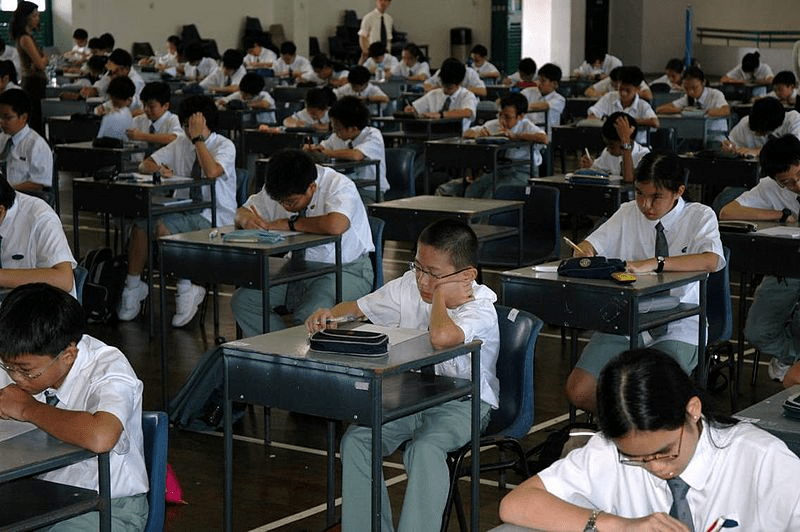
The PSLE constitutes the first major hurdle of the doe-eyed student. It’s taken by the whole cohort at the end of their primary school journey, funnelling them into either the Express stream, the Normal (Academic) stream, or the Normal (Technical) stream in secondary school. The Express stream is known to be the most academically intensive while the Normal (Technical) stream is most vocational.
Students then move on to their next big challenge, the O-Level examinations, in which the top ten percent of the PSLE cohort are able to skip via the Integrated Programme. The pathways continue branching out from there, into junior colleges which is the fastest route to university, polytechnics which offer diploma courses, and the Institute of Technical Education (ITE) which focuses on technical skills and knowledge.
The full picture has more layers, of course, but the above information gives some Singapore education facts and a quick overview.
Strengths of the Singapore education system
In many ways, the academic success of the Singapore education system cannot be denied.
The latest PISA rankings published in 2016 sees Singapore topping the charts for all three aspects of maths, science, and reading, surpassing countries across the globe to be number one. PISA, which stands for Programme for International Student Assessment, ranks global education based on tests taken by 15-year-olds and it is considered to be the benchmark to determine the best education systems in the world.
The results by PISA is supported by another educational ranking known as Trends in International Mathematics and Science Study (TIMSS), in which Singapore takes the top spot for science and maths in both primary and secondary levels.
Aside from producing results in academia, Singapore’s schools have been geared toward building the economy. If Singapore’s economic performance is any indicator, the system has been successful in churning out the skilled labour needed for the city-state’s economy to flourish thus far.
The Singapore education system flaws
If Singapore’s achievements in global education rankings have made it the envy of the developed world, what’s there to complain about?
Below are some of the common grouses that I have heard. (Disclaimer: what I’ll be covering in this section does not necessarily reflect my own opinions.)
It breeds stress

Stress is among the major problems faced by students in school today.
A little bit of stress is good when it leads to positive outcomes. However, there’s a consensus among locals that the Singapore education system, with its competitive nature and its deep emphasis on grades and tests, is far too stressful. In fact, high anxiety plagues a high proportion of students in Singapore.
When schools take an emotional toll on students, that is a problem. It is also a problem when students are pressurised so intensely that they define their worth according to their academic results – even to the extent that they could take their own life for failing exams, as a Primary Five student did in 2016.
It promotes inequality
The Singapore education system is underpinned by the concept of meritocracy in which talent and ability pave the way to success. Meritocracy hinges on fairness but paradoxically, it can breed systemic unfairness.
How so, you ask?
Even if all students have equal opportunities to enter the race, they do not all begin from the same starting point. Knowing fully well that success hinges on ability, affluent families spare no effort in their child’s early education through means like enrolling them in enrichment classes.
The wide income disparity in Singapore, when left to its own mechanisms, will easily translate to lower-income children underperforming when compared to their higher-income classmates with greater resources. This hinders intergenerational mobility (i.e. the ability for different generations within the same family to change their social status).
The paradox is compounded with streaming, which in theory gives students room to grow at the pace that matches their learning abilities, but in practice may form a caste system that widens the divide between students based on their academic standing.
Education itself may also contribute to inequality; in a skills-based economy where university education is rewarded with monetary remuneration, the education gap reinforces the income gap between individuals. In this way, education keeps the wheel of inequality in motion.
It is not relevant
Exam smartness will only go so far.
It’s getting more and more challenging to predict the future economy and determine the jobs of tomorrow. Therefore, the education system should be imparting adaptive skills for individuals to thrive in a fast-changing world and the digital age. Beyond having the knowledge to ace tests, it’s important for individuals to be able to apply that knowledge to real-world challenges with their inference, analytical and problem-solving skills.
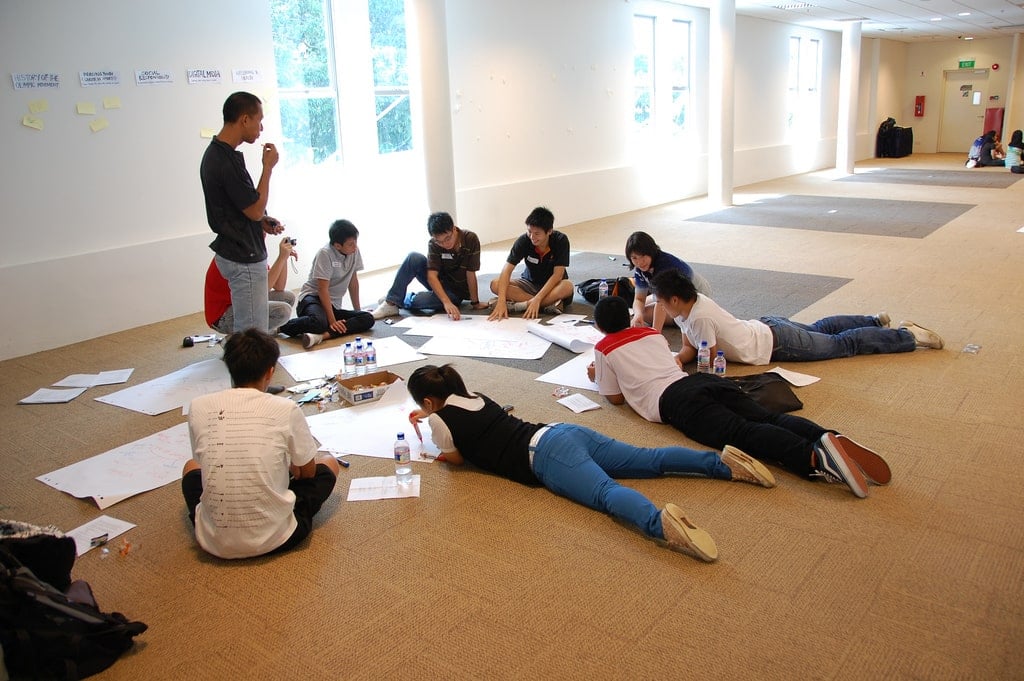
The economy also needs fresh ideas that can only be fueled by innovation and creativity. It needs entrepreneurs who can find unique ways to fill gaps with new initiatives.
Try as it may, rote learning and passive memorisation are still deeply entrenched in the Singapore education system even though they are ceasing to be relevant.
Upcoming changes in Singapore education system
Is there light at the end of the tunnel? I believe there is.
Whatever Singapore education system flaws that the public has seen, chances are, MOE has seen it too.
If you have gone through Singapore’s education system fifteen or even five years ago, it’s understandable that you agree with the Singapore education system problems listed above. But if you’ve also kept yourself updated on the changes in Singapore education system, you’ll understand that MOE has already implemented policies to address the Singapore education system flaws – well, at least most of them.
Such changes in Singapore education system includes scrapping exams for Primary 1 and 2, doing away with mid-year examinations for Primary 3 and 5 and Secondary 1 and 3, and rolling in limits to weighted class tests per term. The PSLE grading system will also be reformed to a scoring band of Achievement Levels (AL) that ranges from one to eight. These measures are in line with deemphasising academic grades and leaving more room to nurture the joy of learning.
The issue of inequality is also one that the government has voiced its concern about. Various measures are in place to tackle it; at the education level, children from lower-income families receive additional support through bursaries and educational programmes. More recently, it has been announced that the spending on the pre-school sector will be doubled by 2022 to narrow the inequality gap at an early stage before it worsens.
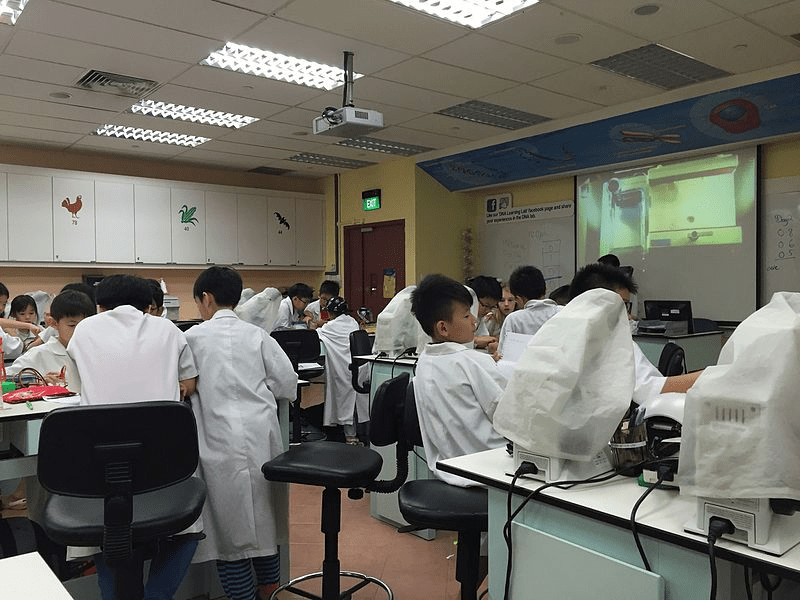
The Singapore education curriculum is moving towards developing skills that will be relevant for the future. Applied learning, which focuses on solving real-world problems beyond the classroom through ideation, innovation and creativity will be a huge aspect of education. Schools have already been encouraged to develop Applied Learning Programmes (ALP) since 2013, but to take it a step further, all primary schools will have ALPs by 2023.
Lifelong learning is also a theme that the government champions. To ensure that the workforce remains competitive and to increase the education level in Singapore, SkillsFuture Singapore provides an array of workforce development programs for people from various backgrounds. These programmes are made accessible through direct subsidies with SkillsFuture Credit.
These are just some of the many upcoming changes in Singapore education system. Such Singapore education reforms make it clear that the government is going to great lengths to update its curriculum for the better and they strive towards offering what is perhaps the best education in the world.
Balancing it out: the Singapore education system pros and cons
Now that you have a wider picture of the Singapore education system pros and cons and where it’s headed towards after the Singapore education reform, we can gather a more informed opinion on whether there remain so many problems with the Singapore education system.
Personally, I keep a positive outlook. I believe that the education offered in Singapore is rigorous, competitive and top-quality. Much has been done to negate the problems associated with the Singapore education system. With the upcoming changes in Singapore education system, I am confident that the Singapore education system flaws will be overshadowed by its benefits.
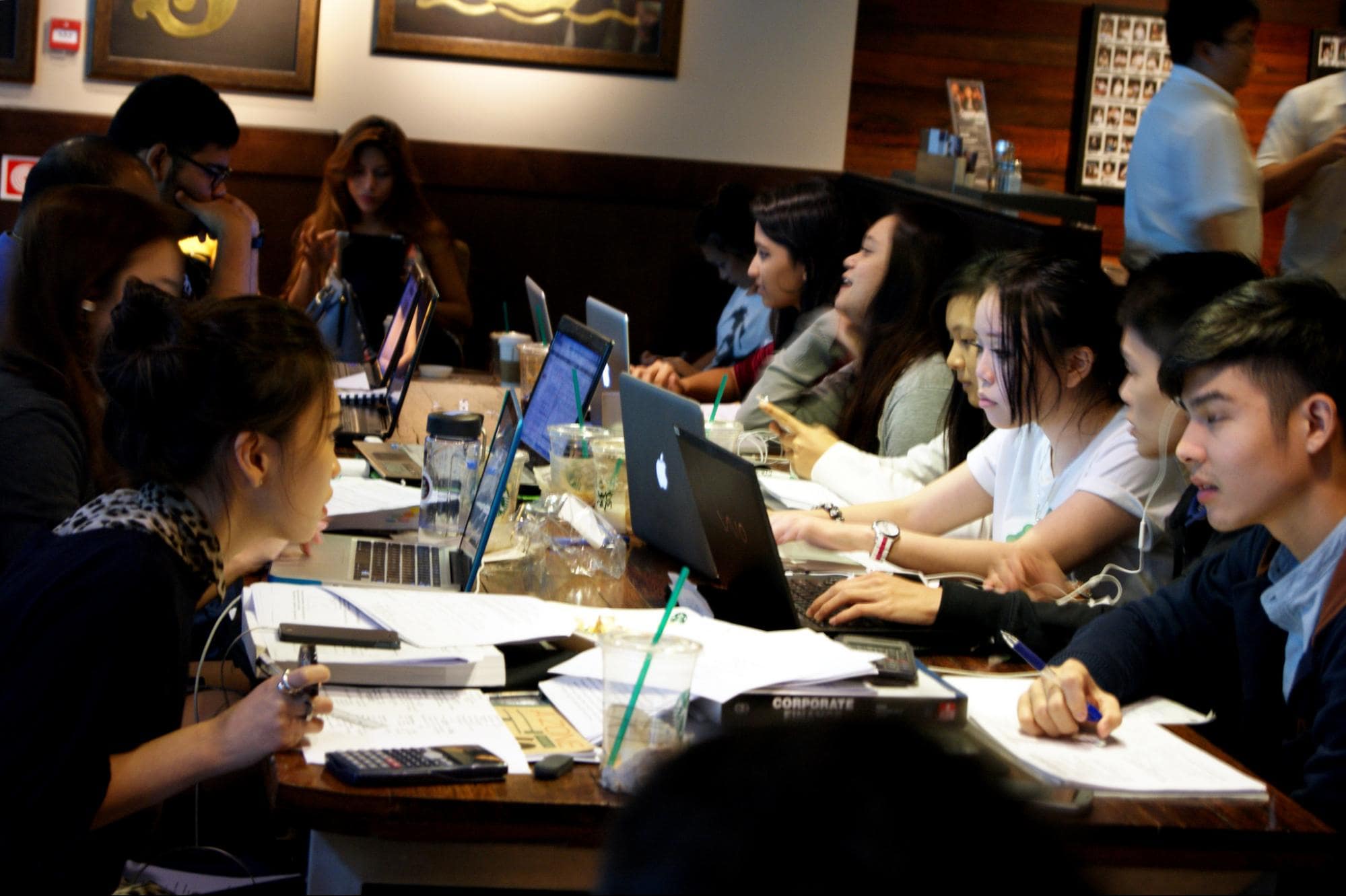
The issue of how the Singapore education system is too stressful, however, is one that is unlikely to be resolved easily. Many students face immense pressure from their parents because the society, as a whole, have the mindset that excelling in examinations is the best way to get ahead in life. The government can only do so much to tackle the issue of how the Singapore education system is too stressful.
The situation can only change if parents believe that the education system will present their child with many opportunities to prove themselves in future. This way, examinations will cease to be a life-defining hurdle. Slowly, that will change the way the Singapore education system is too stressful.
While there is no such thing as the perfect education system, much can be learned when looking into which country has the best education system (if it is not Singapore), checking the Singapore education system compared to other countries, and finally, picking up what Singapore can adapt from other role models.
The Singapore education rankings
What exactly is the Singapore education ranking in the world? And which country has the best education system in the world?
Well, the answer depends on which study you’re looking at. There isn’t really an agreed-upon defining quality of the “best education system”, so each study focuses on different aspects of the education system that they can somehow quantify. From there, the Singapore education rankings are derived.
As mentioned, the Singapore education rankings is at number one in PISA and TIMSS. In the PISA rankings, Hong Kong, Japan, Macau, Estonia, Canada, Taiwan, Finland, South Korea and China come after Singapore. In the TIMSS rankings, Singapore is followed by Hong Kong, Korea, Chinese Taipei and Japan in maths, and Korea, Japan, Russian Federation and Hong Kong in science. The Singapore education rankings in these two studies prove that the Singapore education system has the ability to produce top scorers in the field of maths and science.
Education firm Pearson, on the other hand, puts Finland at the top spot among developed countries with the best education systems. This is measured by international test scores, graduation rates and prevalence of higher education seekers. South Korea, Hong Kong and Japan follow, and the Singapore education system ranking comes at fifth place.
There are also other studies that look into different aspects of the education system. For example, the Universitas 21 (U21) rankings which examine the higher education systems in the world and takes into account four areas (resources, environment, connectivity and output), puts United States, Switzerland, United Kingdom, Sweden and Denmark among the top five. The Singapore education rankings come up as the best Asian country, at ninth place after Finland, Netherlands and Canada.
The education system in Singapore compared to other countries
Now that we have a rough idea of some of the best education systems in the world, let’s briefly look into the education system in Singapore compared to other countries. In particular, I’ll pick out the strengths of the best education systems in the world, highlighting what Singapore could possibly learn from them.
South Korea, Japan and Hong Kong are three other Asian countries that fare well in global rankings. These three education systems, however, are similar to Singapore in its huge emphasis on educational achievement, the presence of high-stakes standardised testing, and the normalcy of competition. Therefore, when deliberating the educational systems that Singapore can learn from, I shall turn to the west.
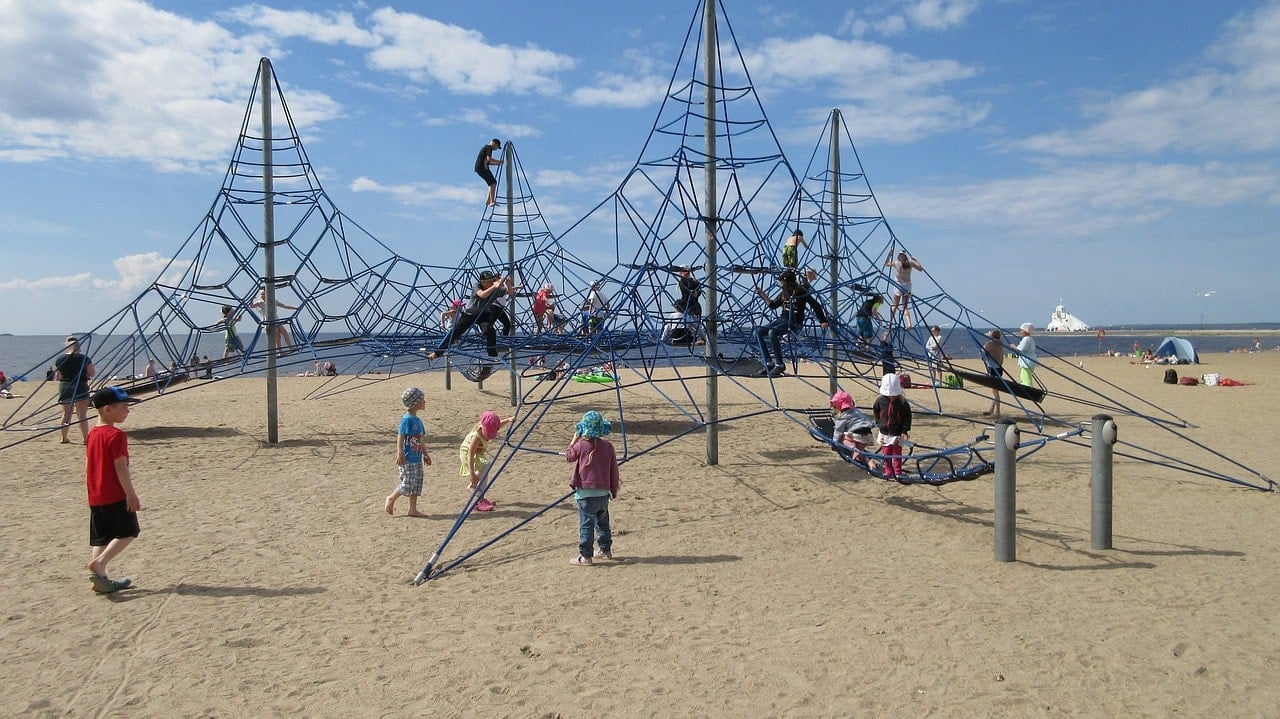
Finland has a unique education system that is successful despite going against the traditional ideas of school. In Finland, there are no private schools – each and every one of them are funded by public dollars, and students can get the same quality education no matter which school they enrol in. Between students, rankings and comparisons are minimised as much as possible. There are minimal standardised tests and little homework. On top of that, teaching is a highly respected profession, and all teachers are required to have a master’s degree. The outcome? Finland boasts high performance on global scores and other indicators – for example, it’s the world’s most literate nation.
In fact, the whole Nordic region makes a great reference point. While they are not all the same, the school systems in Iceland, Denmark, Norway, and Sweden share some similarities. There aren’t many national tests, which puts less stress on the system. Creativity, collaboration, and communication – important 21st-century skills – have been rooted deep into the national curriculum since decades ago. The education system, including universities, are free, in line with the Nordic welfare state model. While these countries perform average on PISA rankings, graduates have proven their talent in areas like music, game design and technology innovation.
Have faith in the Singapore education reforms
A complete overhaul of the Singapore education system isn’t a likely possibility. After all, the education system in Singapore compared to other countries is world-class. Despite the Singapore education system flaws that you might harper upon, this is already a system that many nations hope to emulate. They are asking why Singapore education system is successful.
To address the flaws present in the system, Singapore education reforms are coming to place in small steps. I have faith that it’s already moving towards the better. As long as the government keeps up its efforts to develop essential skills needed for the future, create equitable conditions for all students, reduce unhealthy competition, and broaden the pathways to success, I believe that Singapore’s future generations are on a good road.
